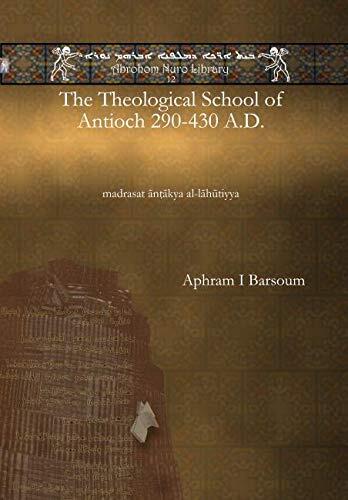
The Theological School of Antioch 290-430 A.D.: madrasat ānṭākya al-lāhūtiyya : madrasat ānṭākya al-lāhūtiyya
まだ評価がありません
History
形式
ペーパーバック
ページ数
17
言語
アラビア語
公開されました
Jan 10, 2011
出版社
Gorgias Press
ISBN-10
1617194573
ISBN-13
9781617194573
説明
Set against the rich historical backdrop of early Christianity, this work delves into the theological school of Antioch, focusing on its development from 290 to 430 A.D. This period was crucial for shaping Christian thought, and the text explores how this institution emerged as a pivotal center for theological discourse and education.
Through meticulous research, the author examines the notable figures and debates that defined the school, providing context to its influence on early Christian doctrine. The dual-language format offers accessibility to a wider audience, allowing readers who are fluent in Arabic and English to engage deeply with the material. This unique approach enriches the academic discussion and broadens the understanding of Antioch's legacy.
The narrative also highlights the school's engagement with philosophical trends of the time, explaining how it reconciled faith with reason. By doing so, it provides insight into the intellectual currents that shaped the identities of early Christians.
Overall, the work is not only a scholarly account but also an invitation to reflect on the complexities of faith, education, and the evolution of theological thought in a pivotal era of history.
Through meticulous research, the author examines the notable figures and debates that defined the school, providing context to its influence on early Christian doctrine. The dual-language format offers accessibility to a wider audience, allowing readers who are fluent in Arabic and English to engage deeply with the material. This unique approach enriches the academic discussion and broadens the understanding of Antioch's legacy.
The narrative also highlights the school's engagement with philosophical trends of the time, explaining how it reconciled faith with reason. By doing so, it provides insight into the intellectual currents that shaped the identities of early Christians.
Overall, the work is not only a scholarly account but also an invitation to reflect on the complexities of faith, education, and the evolution of theological thought in a pivotal era of history.